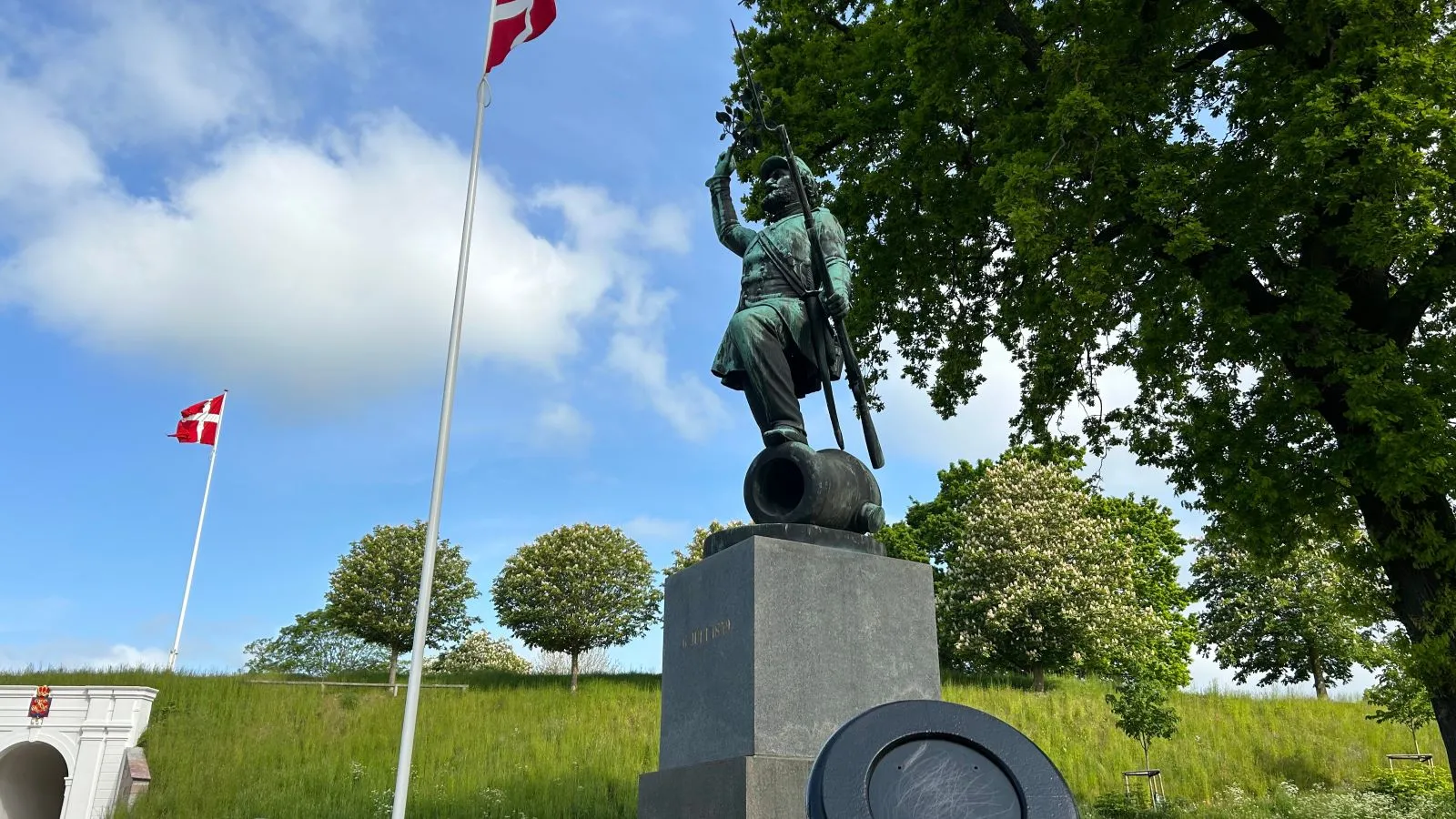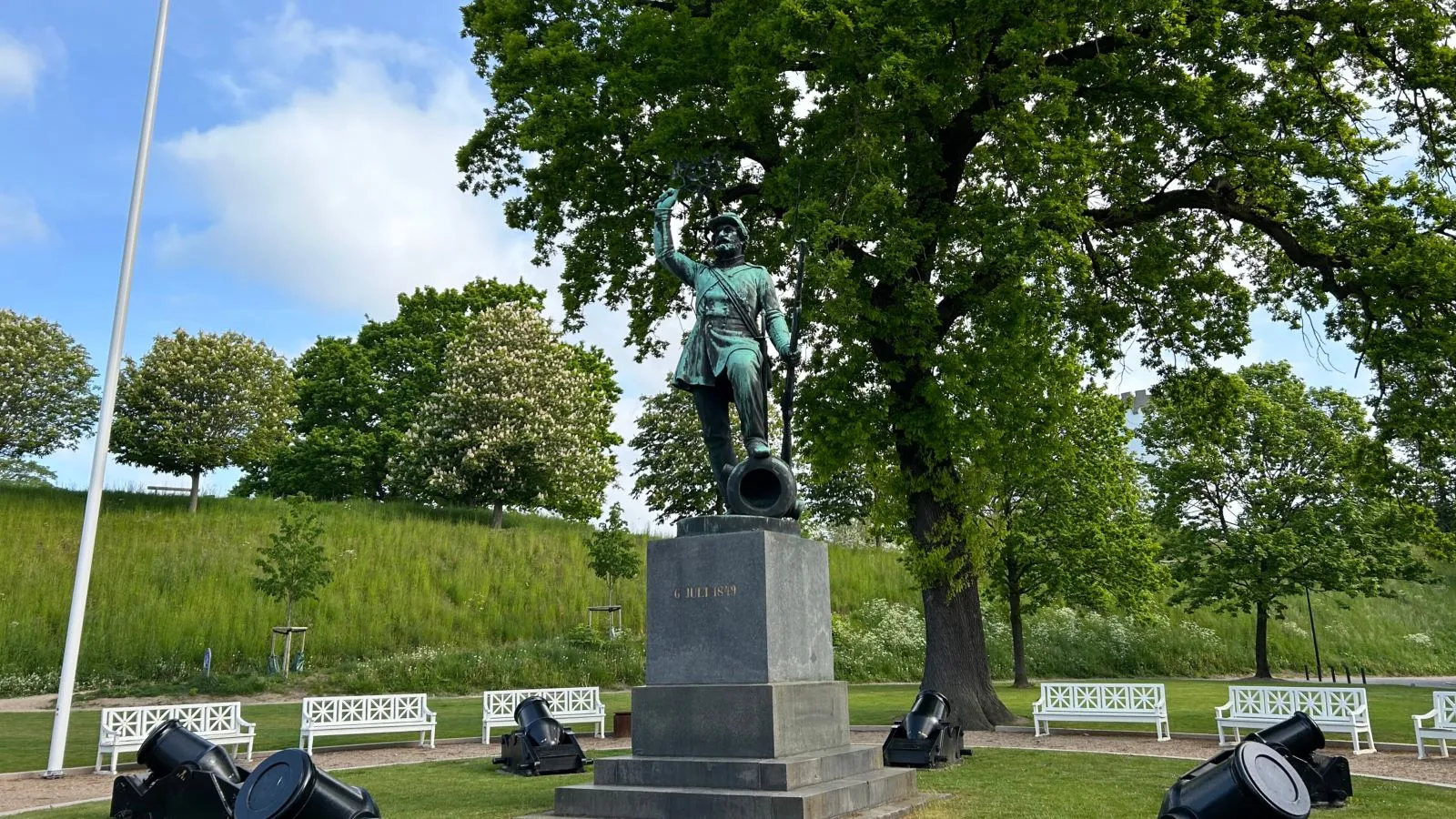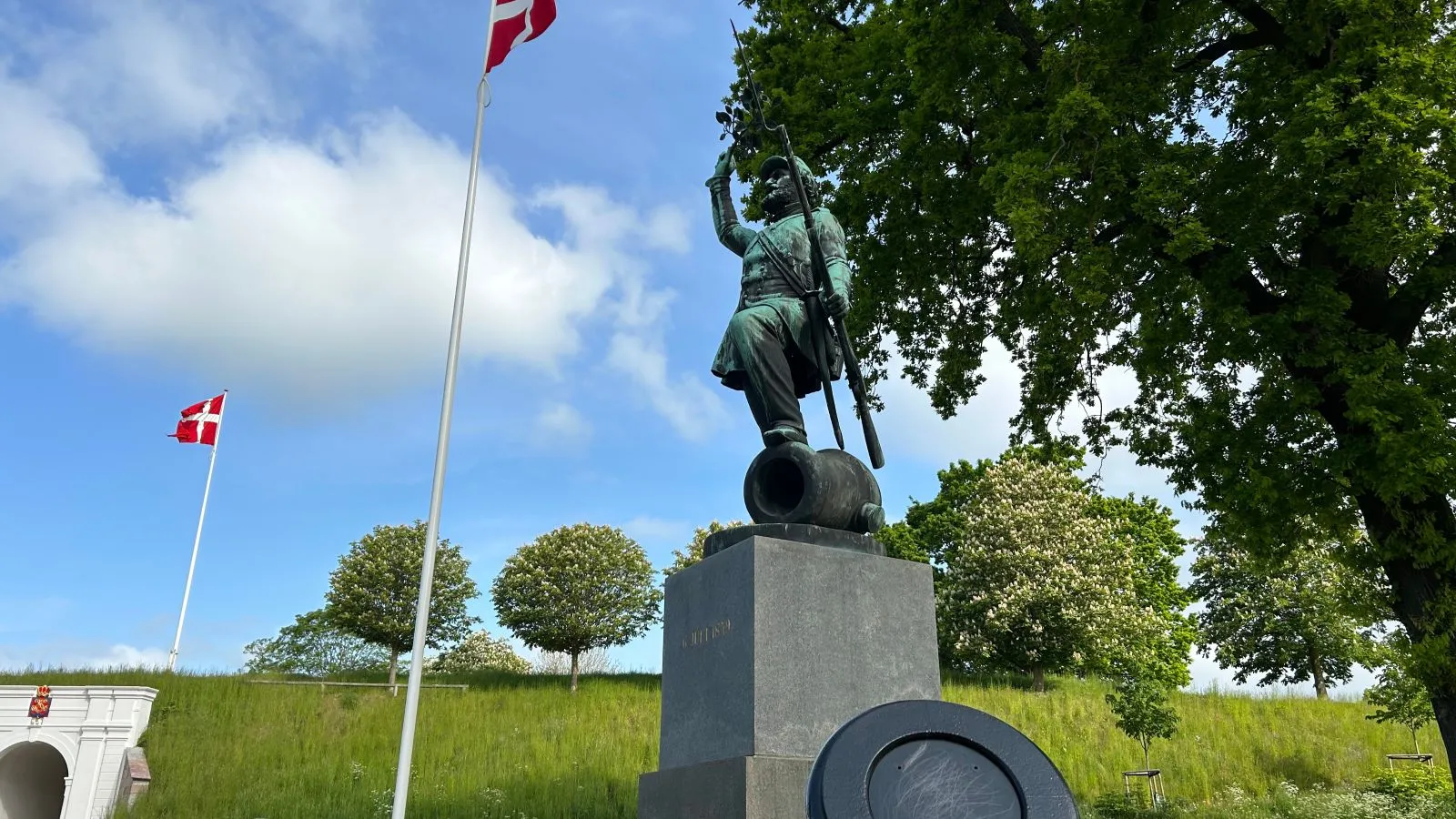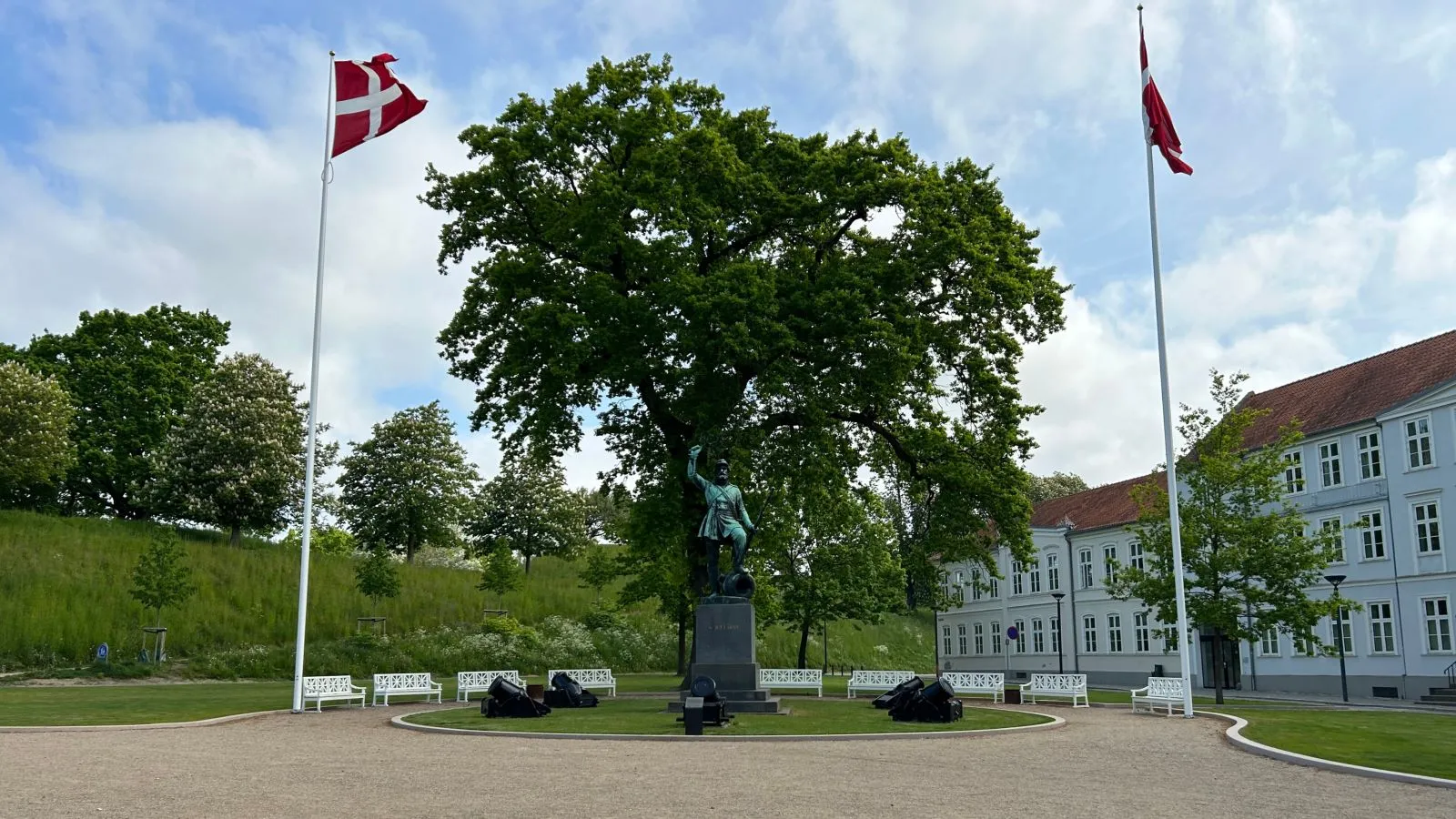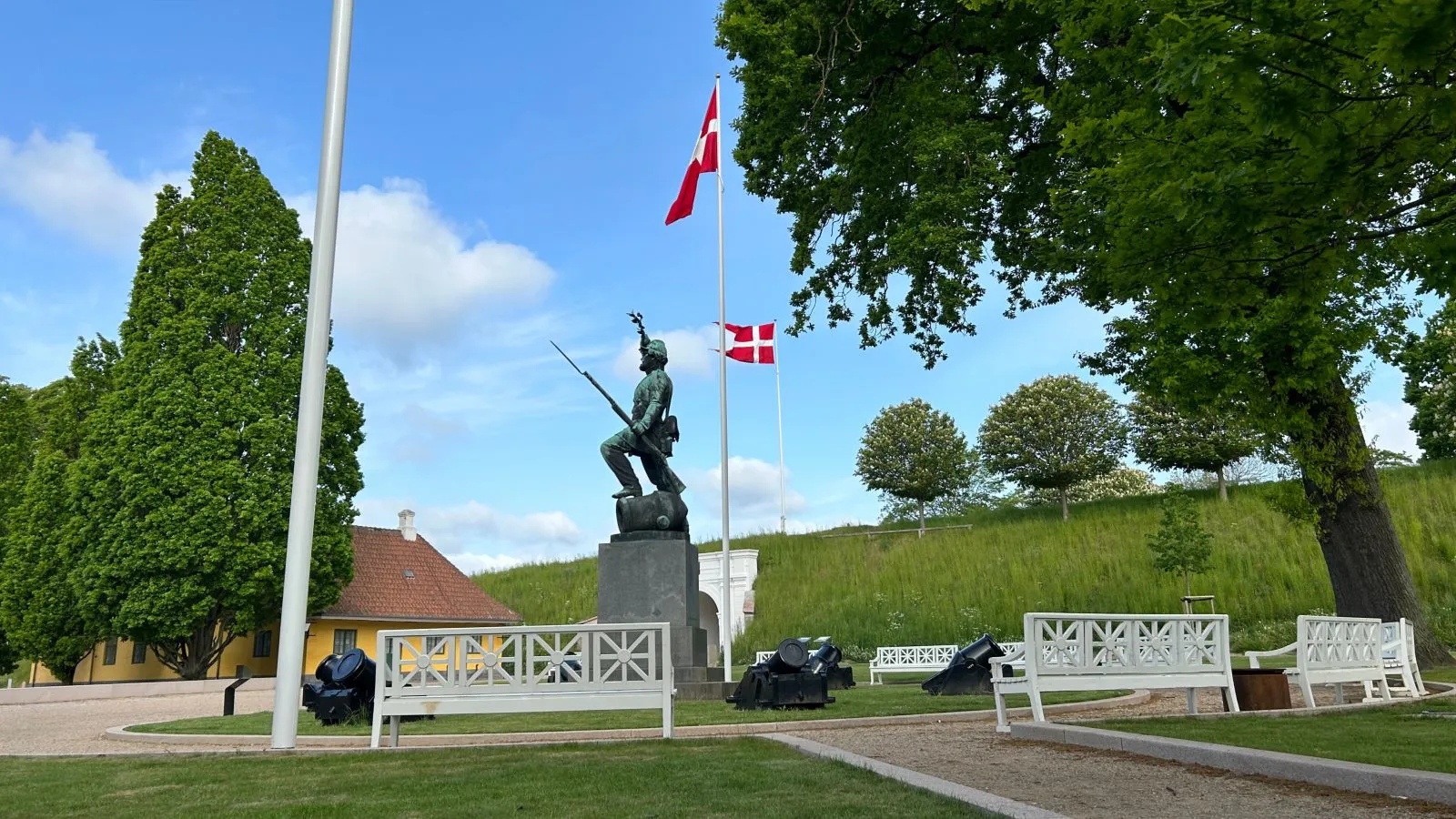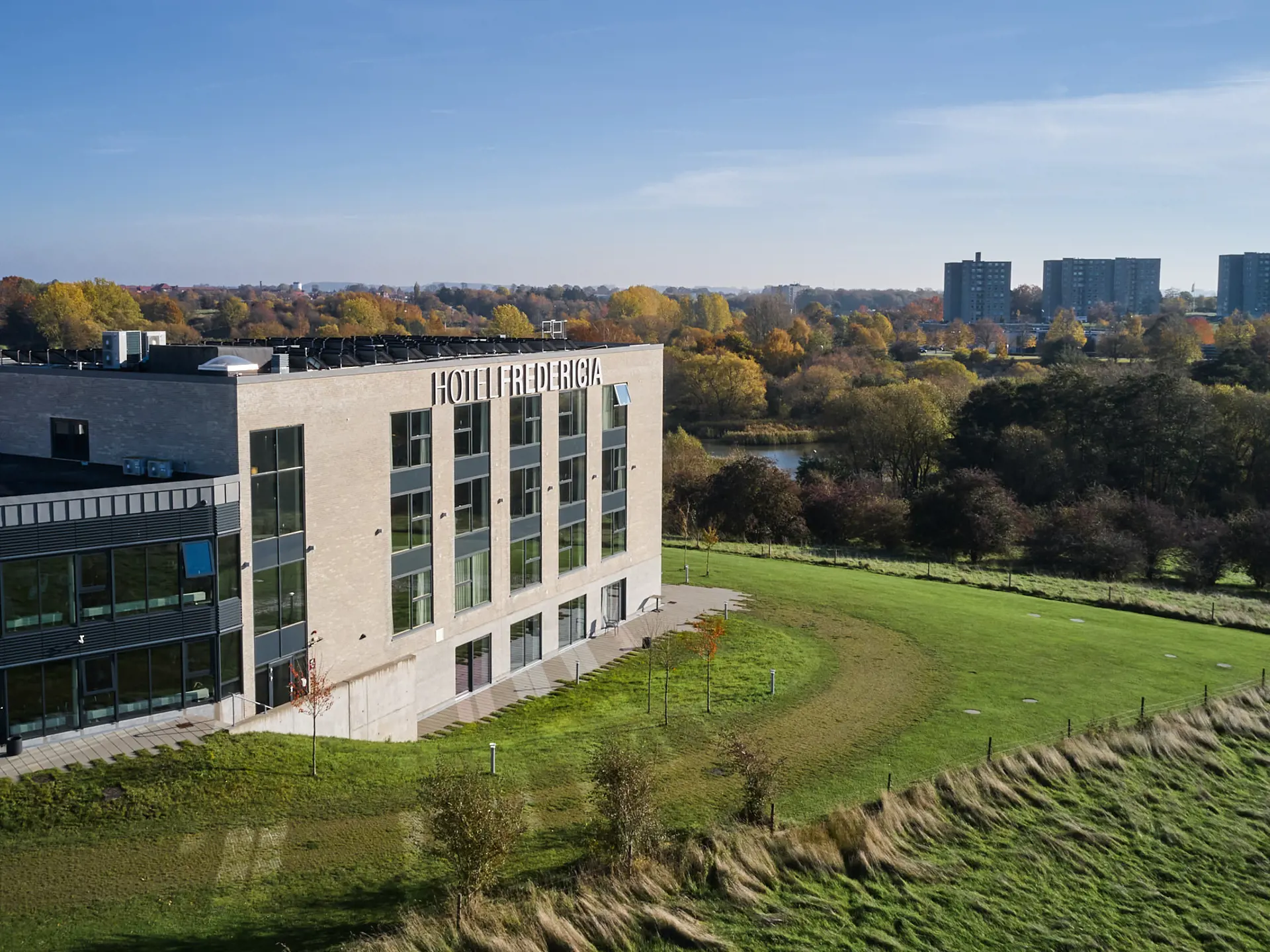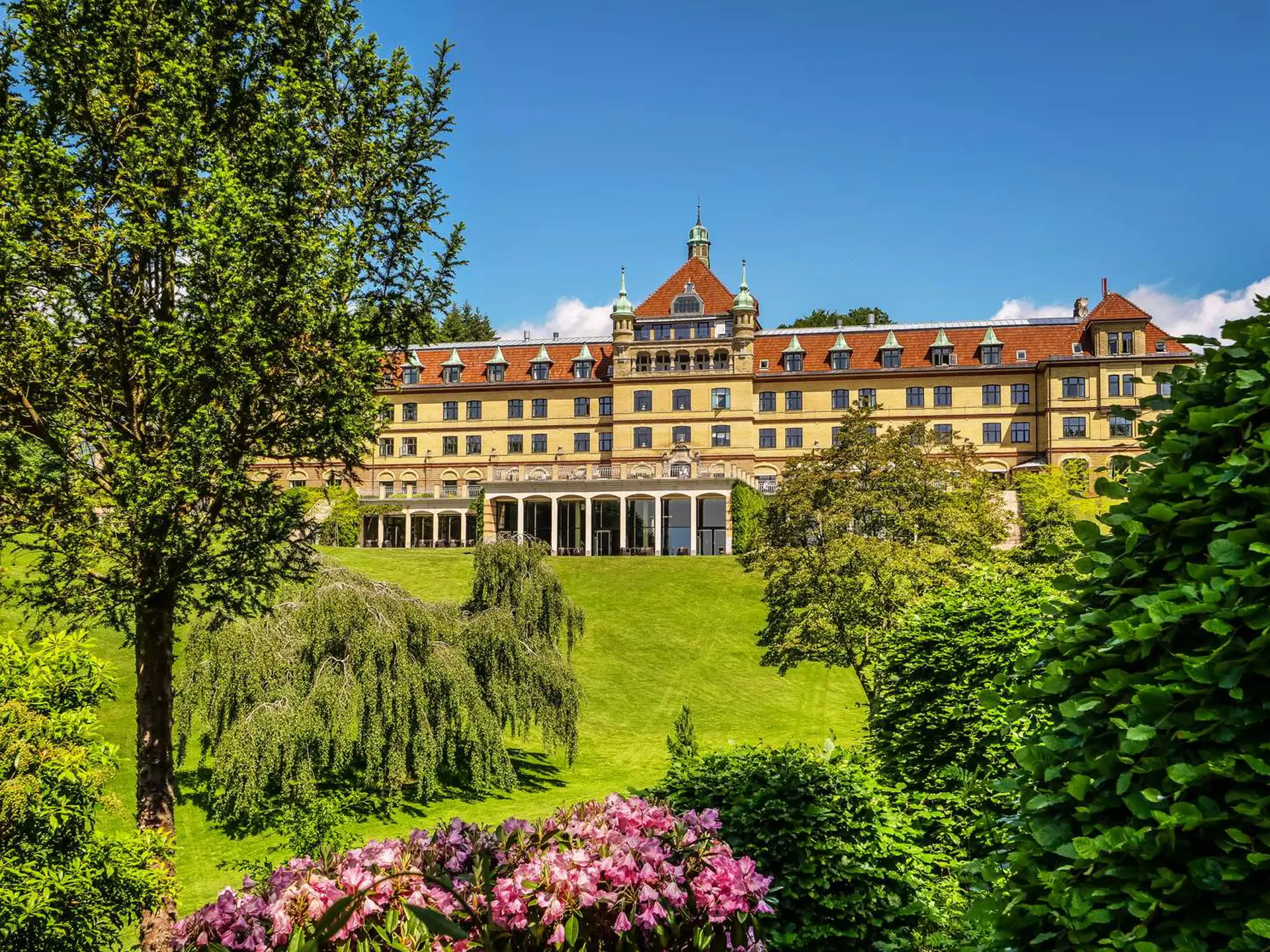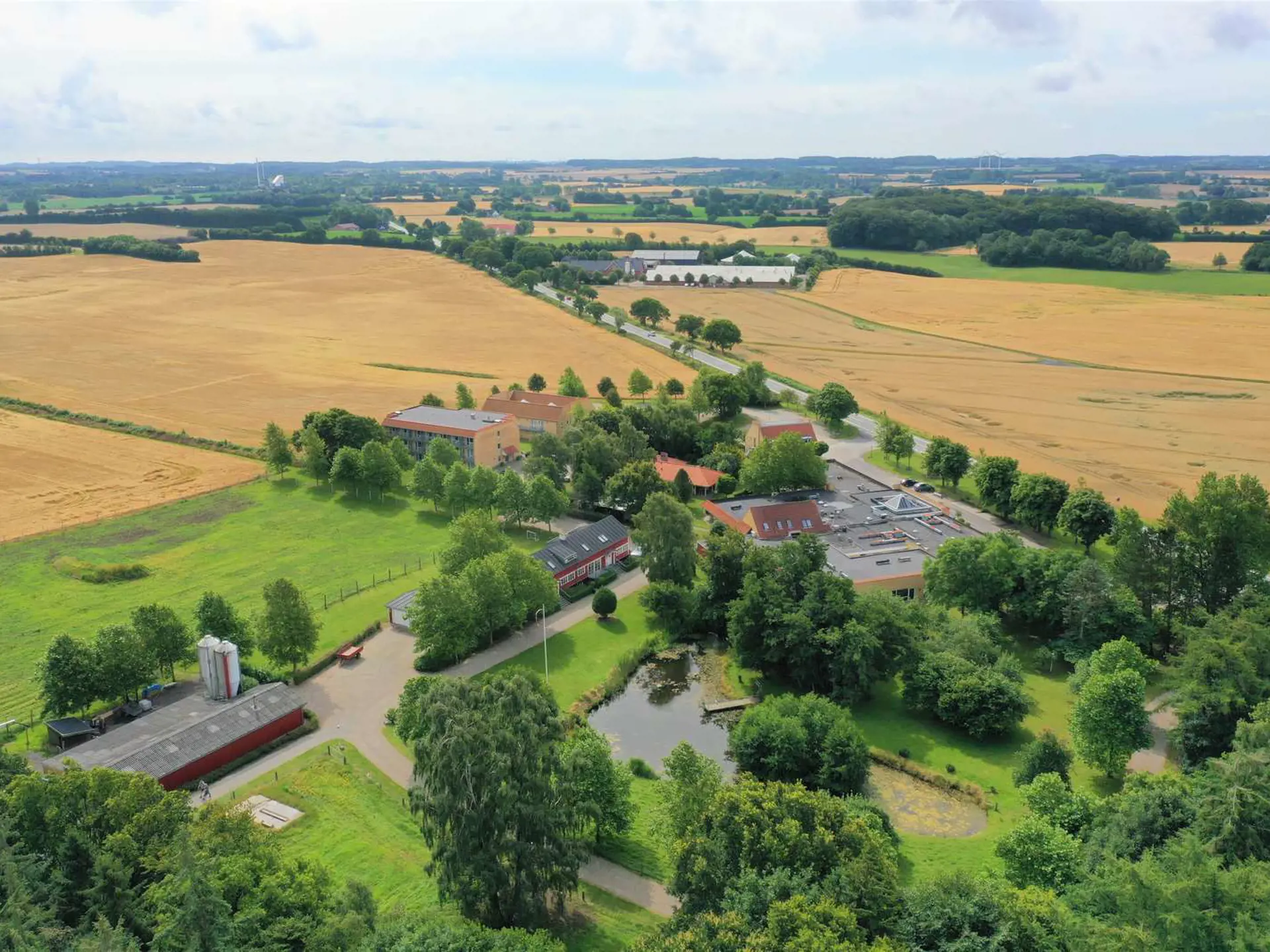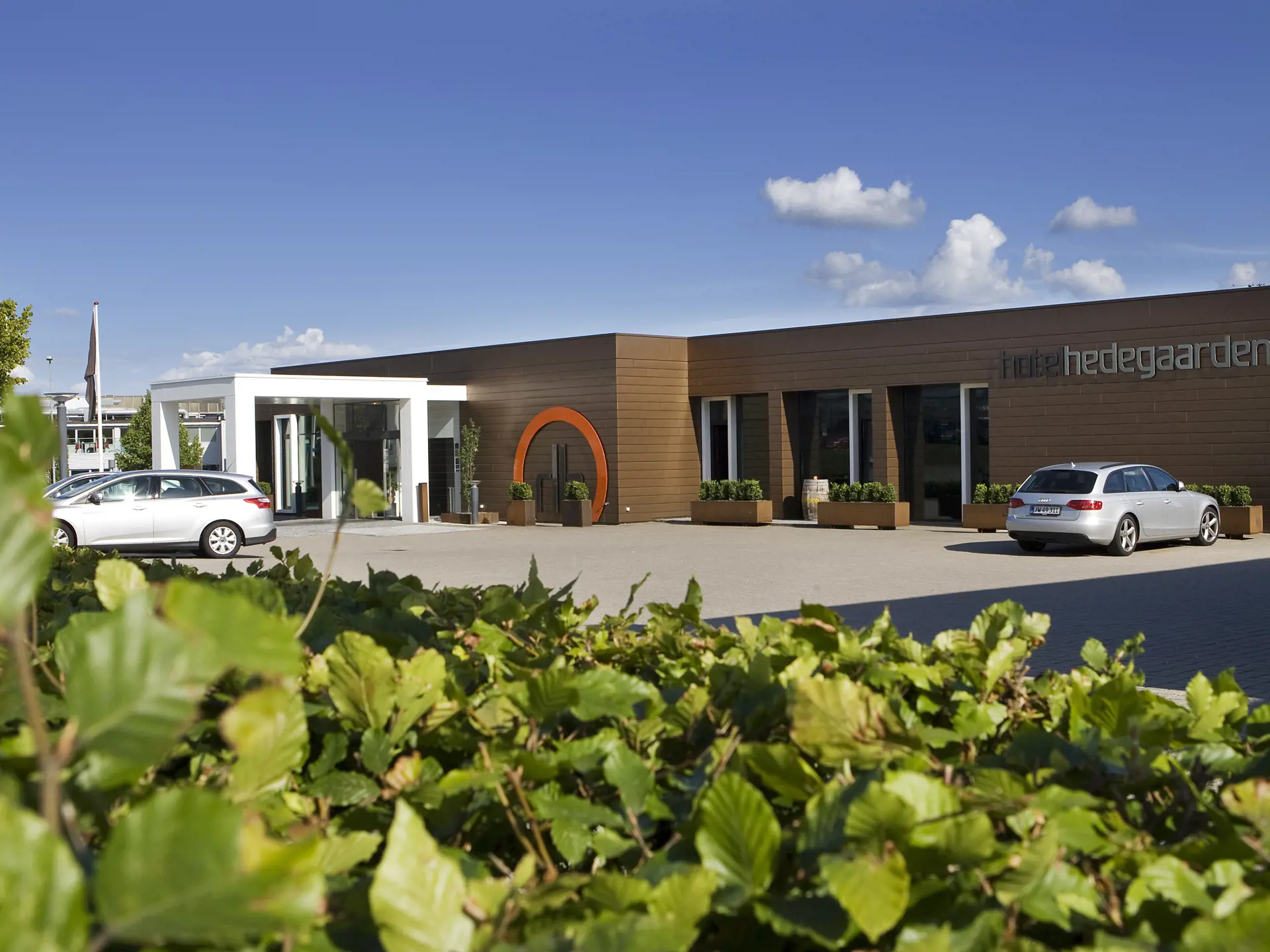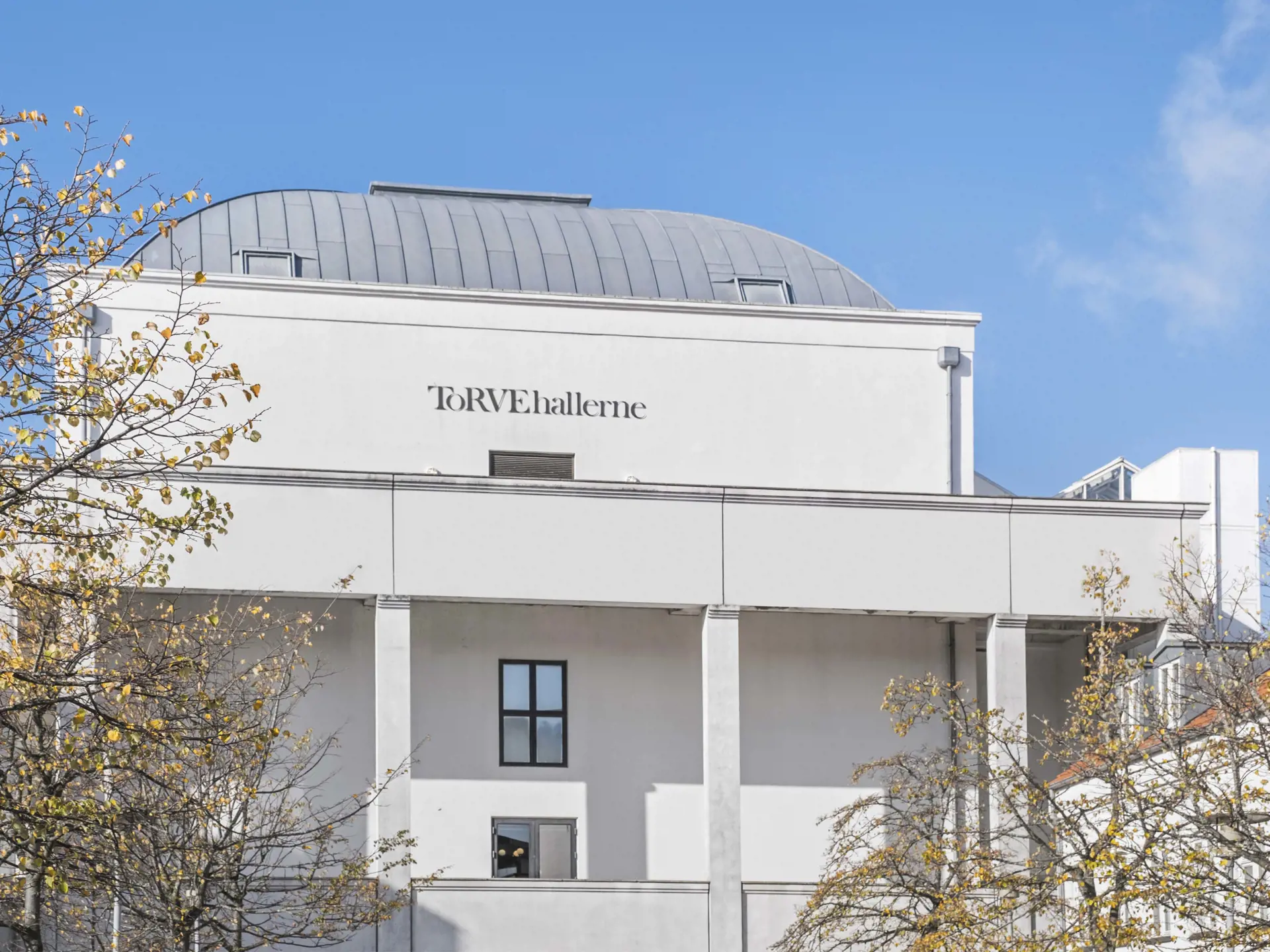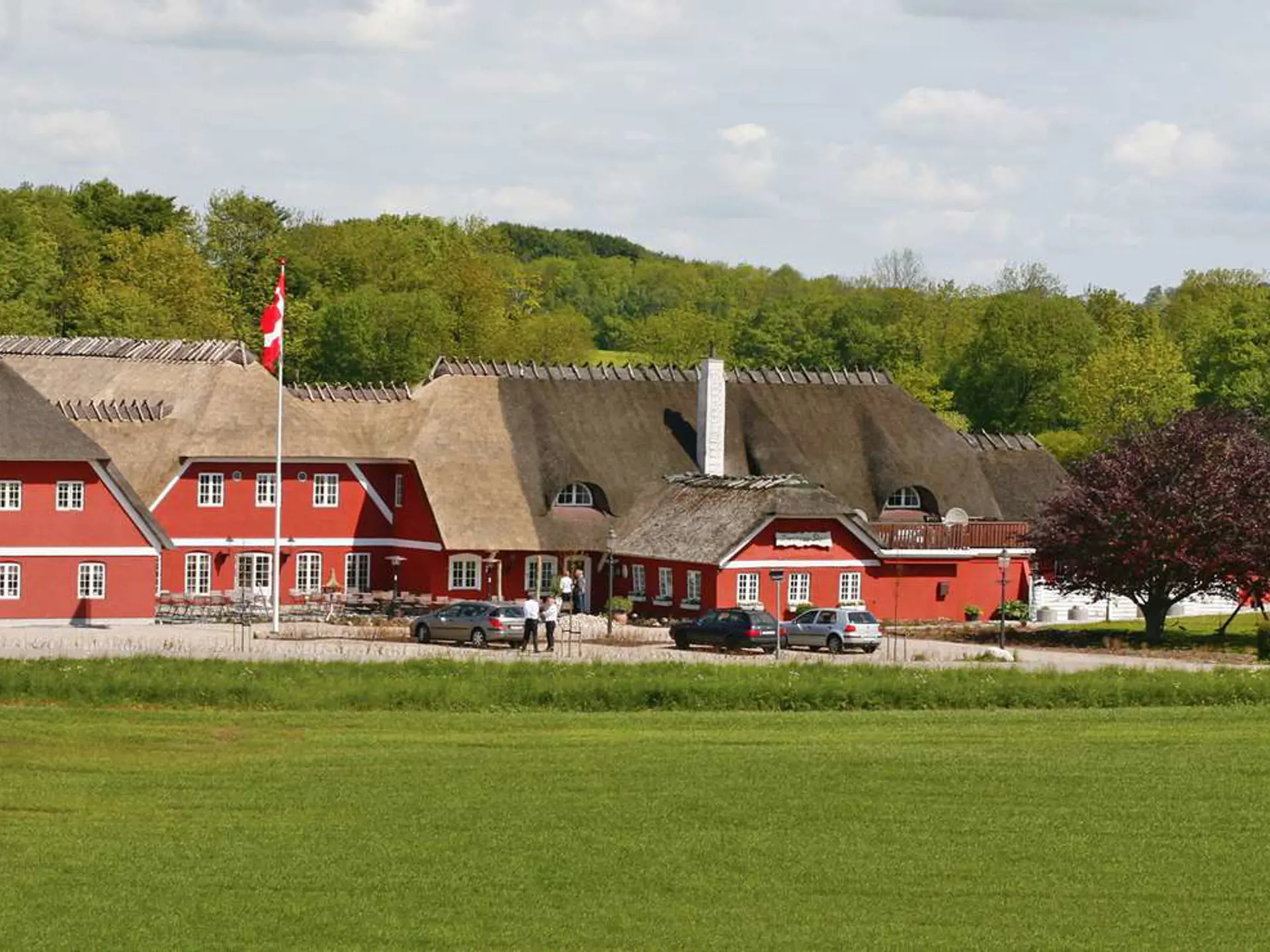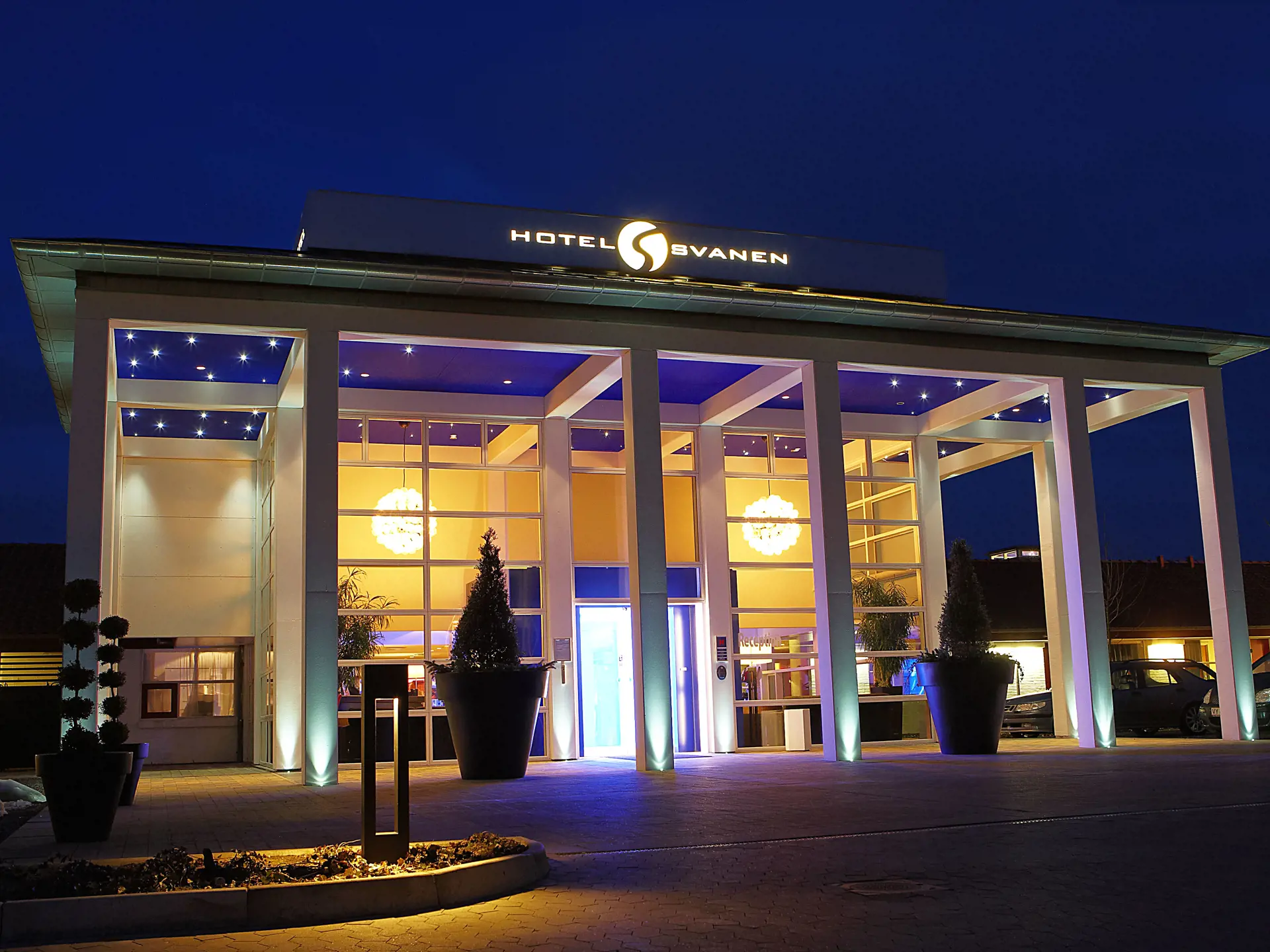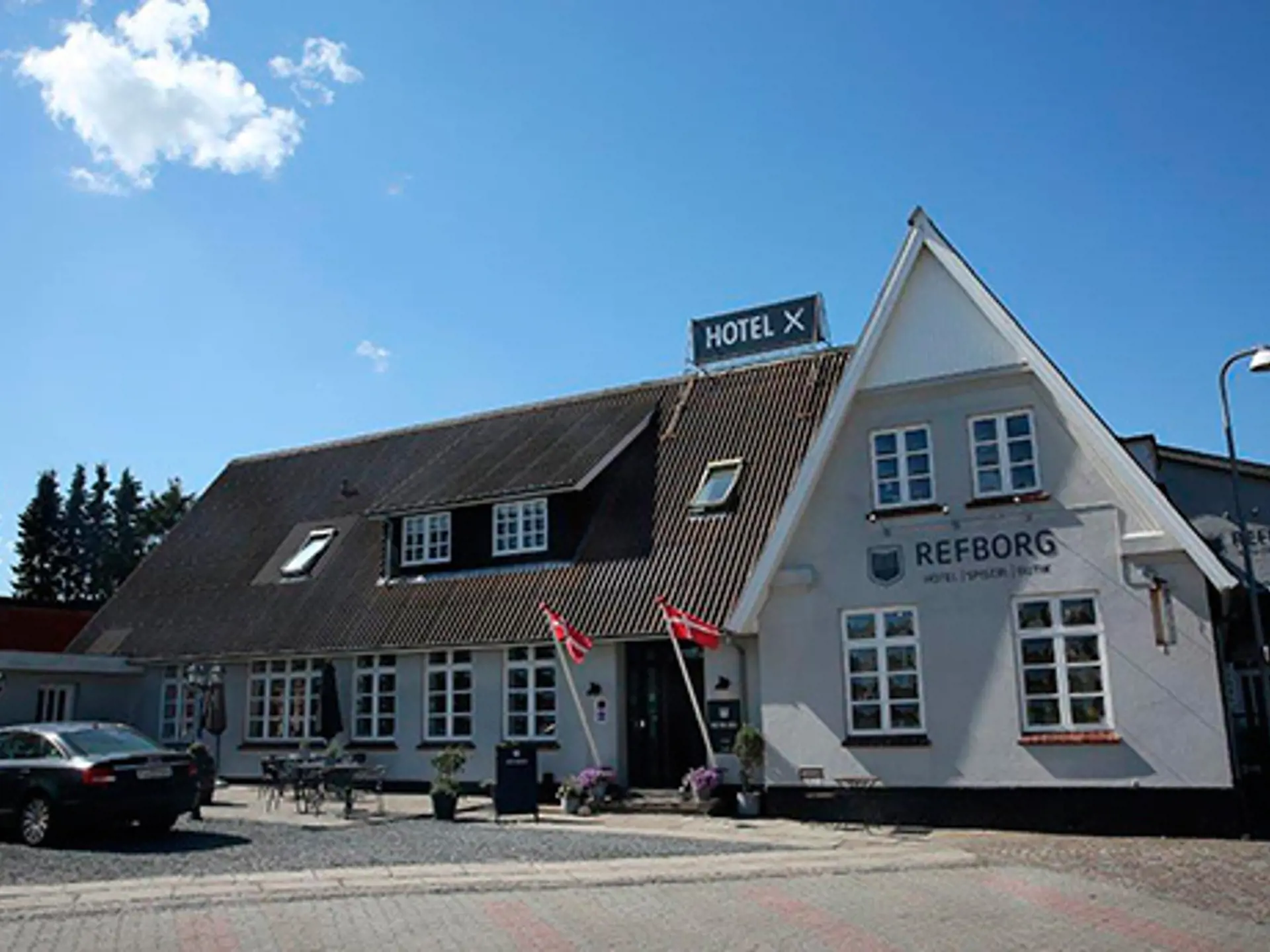The Brave Soldier Statue - Fredericia's Landmark
H. W. Bissen's famous monument, The Brave Soldier — or simply "The Soldier" as it is commonly known — is Fredericia's most important monument and a frequently used symbol of the city. The Soldier is located in the center of the Brave Soldier Square by the Prince's Gate and Fredericia Ramparts and holds significant historical importance for both Fredericia and the rest of Denmark!
A Key Part of Fredericia's History and Status as a Fortress Town
The Brave Soldier was erected in 1858 to commemorate the Danish victory at the Battle of Fredericia on July 6, 1849. The statue is not only a symbol of the battle but also of its significance during the Schleswig Wars.
You can read more about the Battle of Fredericia in 1849 here!
Monument in Honor of the Ordinary Soldier
The Brave Soldier is the first statue in the world to be erected in honor of the common soldier. Thus, it was already something special in 1858.
The large bronze statue was designed by the artist H.W. Bissen, and the soldier's face was modeled after one of the common soldiers who participated in Fredericia in 1849. Bissen quickly realized that it was not the generals, but the ordinary, unknown soldier who should be honored.
Bissen himself called the statue "The Danish Soldier After the Victory," but today it is known as "The Brave Soldier," "The Danish Soldier," or simply "The Soldier."
The Soldier - A Gathering Point for Activities and Events
Besides being used as a symbol of Fredericia, the statue of the Soldier is also central to many of Fredericia's events. From student traditions to wreath-laying ceremonies on various occasions and, of course, the annual city event "the Fortress Days," where Fredericia commemorates the events around July 5th and 6th, 1849.
Read about everything happening in Fredericia during the Fortress Days here!
Visit the Brave Soldier Statue at Soldier Square
The placement of the Soldier by Prince's Gate was no coincidence. It was here that the Danish troops rode into Fredericia after the victory. With the placement of the statue, the square was also named "the Brave Soldier Square."
You can read much more about the newly renovated Brave Soldier Square here!
With Captured Mortars and a Beech Branch
The Brave Soldier is 3.75 meters high and made of bronze. He stands on a 2.5-meter granite pedestal and is surrounded by six mortars, two of which were said to have been captured from the Schleswig-Holstein forces during the Battle of Fredericia in 1849.
In one hand, the Soldier holds his weapon, while in the other, he holds a beech branch. Like the Greek olive branch that symbolizes victory, the green beech branch is meant to symbolize the Danish victory.
National Fundraising and a Special Song by H.C. Andersen
As early as July 12, 1849, just a few days after the Battle of Fredericia on July 6, a decision was made to start a fundraising campaign to erect a monument to the battle. The monument was funded by a national collection, and a committee was quickly formed to implement the plans.
The national fundraising event was held at the Casino Theater in Copenhagen with many prominent guests, including H.C. Andersen, who, on the occasion of the fundraiser, had written "i Danmark er jeg født." The text was meant to evoke Danish sentiment and patriotism among the audience to make the fundraising an even greater success.


